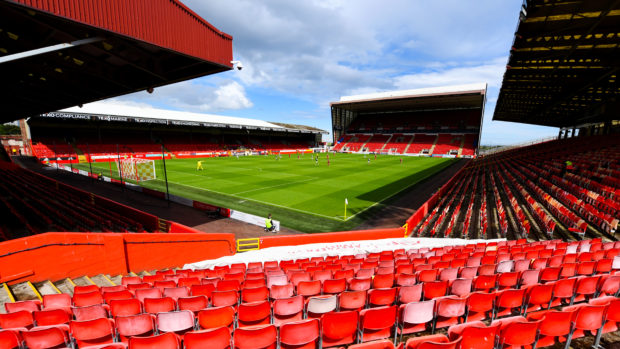Culture, economics, football and Covid; an ugly mix which I probably shouldn’t attempt to integrate into this half page. However, I love a challenge.
A quick warning for the bourgeois and political classes reading this, you might not like the next few sentences. I also know of one Twitter acquaintance who will be shaking their head (you know who you are).
For me though, football captures everything that culture is about. Culture is who we are, it is deep inside us. We don’t think about why it is there, it just is. Culture is part learned, part absorbed and partly something we are born into. All of this for me is what football is about.
Football is centuries old and based on fierce competition, bitter rivalries and a tribal element which many dislike and cannot comprehend. These are all the reasons I love it. As an Aberdeen fan it is the games against rivals which are the most exciting, the ones which get to your core, which bring both joy and pain. I want to see Hearts and Dundee United fail or get relegated and then I want them promoted again too so we can beat them again. Rivalries against old teams who often best us like Celtic are also a joy. It’s hard to explain but it’s part of who I am. The culture of football is vital to fans who pay for the whole ecosystem.
Recently big clubs published ‘Project Big Picture’. The proposals were culturally insulting to many fans and disrespectful to what European football is. For those who don’t know, the idea is to remove the big teams from each European league and pit them against each other. This makes economic sense to (mainly) overseas owners and would make the clubs more money. However, the proposals completely ignore the basis of European football and that cultural backdrop. There is no bitter rivalry between Man United and Barcelona or PSG and Liverpool. These matches represent elite sport no doubt, but they lack something that makes football what it is deep down.
Of course, I am writing this through my understanding of football culture today and that which has prevailed in the UK for the last 150 years. It is true that culture changes and evolves and that is why there will be change in the future in the structure of football competition. However, culture changes slowly and those trying to force change need to remember that culture is deeply set inside us all and damn hard to move.
I’ll now drop in politics and Covid to the mix. Discussions around lockdowns are increasingly fraught and dominated by a two-way fight between the economy and public health. I don’t believe this does the decision making process justice because one of the major things getting stripped away from people is their sense of belonging, self and their culture; this impacts mental health too.
As governments ask us to do more to help, we continue to see greater removal of civil liberties. However, I believe what actually hurts to the core is the stripping away of our culture and our norms. Visiting family, going out, travelling and much more are part of who we are as a people and a nation, whether you identify that as Scotland or the UK.
I believe the single spectrum of economy v health is driving governments to remove key cultural grounding points which are actually safe, very low risk and can help us be mentally well. There should be a three way discussion – what can we do safely (remember the phrase following the science), what do we need economically, and how do we protect our cultural norms.
Now here is the ‘he would say that bit’. We are stopping football fans going to games when it is safe. Why not let more football fans into outside stadiums using strict controls. The science shows that is possible, I’d suggest as a minimum in areas including Tier 2 areas (and maybe beyond).
The current ‘on or off’ approach appears to lack an evidence base (the science) and unnecessarily removes a part of our economy, culture and liberty. I fear that culture has been forgotten and governments would do well to remember that culture is at the heart of who we are and what a nation is.
The more we strip away, the more imbalanced individuals and society becomes. It is at that point where things become very fraught, our mental well being is stretched and society tends to fight much harder to retain their own rules.
James Bream was research and policy director at Aberdeen and Grampian Chamber of Commerce and is now general manager of Aberdeen-based Katoni Engineering

